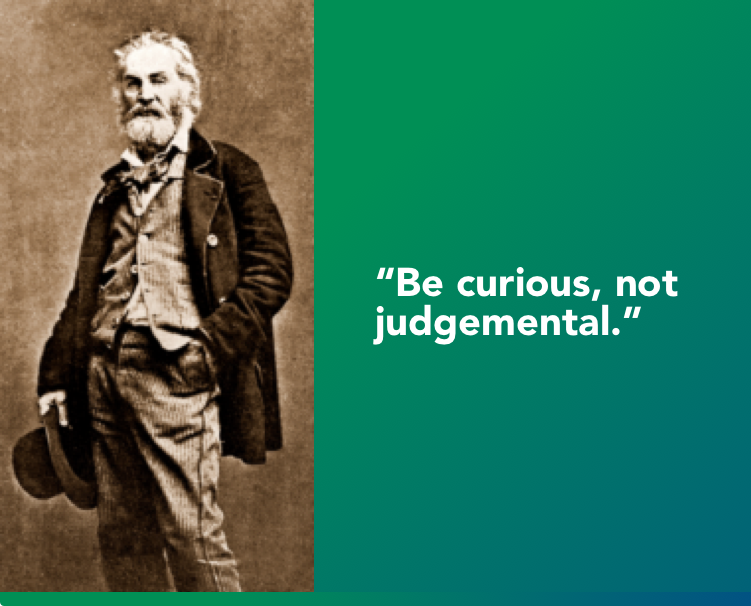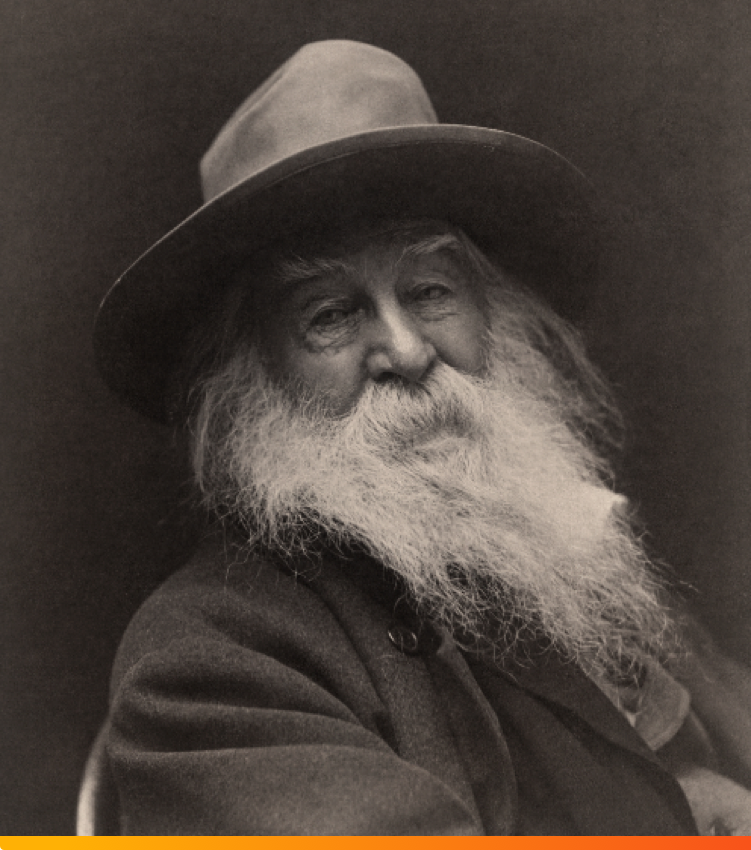As part of Whitman-Walker’s 40th anniversary, officially January 13, 2018, we’re sharing 40 stories to help tell the narrative of Whitman-Walker in community. Welcome to our first story of the year! We thought we’d start by telling you how we landed on our name, so please meet poet Walt Whitman.

Walt Whitman was a celebrated 19th Century poet. Mostly known for his writing, Whitman was also a healthcare worker during the U.S. Civil War. When his brother George was wounded in the Battle of Fredericksburg in December 1862, Whitman traveled from New York to come to his aid.
Whitman cared for his brother in the Army hospital until he was able to return to his regiment. Despite his brother’s improved health, Whitman continued on to Washington, DC, to visit hospitalized soldiers.
Whitman remained in DC throughout the Civil War and after it ended, caring for men in various Union Army hospitals in the area. He had no medical training, but cared for the basic physical and psychological needs of the men. Whitman often said his interest was in helping to preserve the dignity and individuality of the patients. He later published a collection of poems, Drum Taps, about his experiences during the war. An an excerpt from one of these poems titled the The Dresser is engraved into the wall of the Dupont Circle Metro Station in DC. Whitman-Walker’s first executive director, Jim Graham, helped pick the poem to pay tribute to the caregivers of HIV/AIDS epidemic in DC.
“In 2006, D.C. Council member Jim Graham and others were looking for a way to honor the caregivers who had nursed the sick in the earliest days of the city’s HIV crisis. They found inspiration in Whitman’s Civil War-era poem.”
‘That poem was inspired by his ministrations to the sick and the dying, and so that, of course, has a fitting connection to the early years of the AIDS epidemic,’ Graham told Answer Man. Dupont Circle, as the longtime center of the gay community, the setting was perfect.” – Hark, what poem leaps from yonder Metro wall?, Washington Post, 2013
Walt Whitman dedicated his time and efforts to support the care needs that are often overlooked. He cared for the mind and the soul in addition to caring for the body. At Whitman-Walker we work to provide care with dignity, respect and love. We embrace people for their individuality and aim to support their whole health needs. We work to provide dignifying care to anyone who walks through our doors. Walt Whitman’s compassion and ability to recognize the overlooked and unmet care needs reaffirm him as a Whitman-Walker namesake.

Ten Inspiring & Enlightening Quotes by Walt Whitman:
- “Keep your face always toward the sunshine – and shadows will fall behind you.”
- “Every moment of light and dark is a miracle.”
- “Each of us inevitable. Each of us limitless-each of us with his or her right upon the earth”
- “I am larger, better than I thought. I did not know I held so much goodness.”
- “I exist as I am, that is enough”
- “Be curious, not judgemental.”
- “Stranger, if you passing meet me and desire to speak to me, why should you not speak to me? And why should I not speak to you?”
- “If you tire, give me both burdens, and rest the chuff of your hand on my hip, And in due time you shall repay the same service to me, For after we
start we never lie by again” - “You must habit yourself to the dazzle of the light and of every moment of your life.”
- “This is the city, and I am one of the citizens/Whatever interests the rest interests me”


